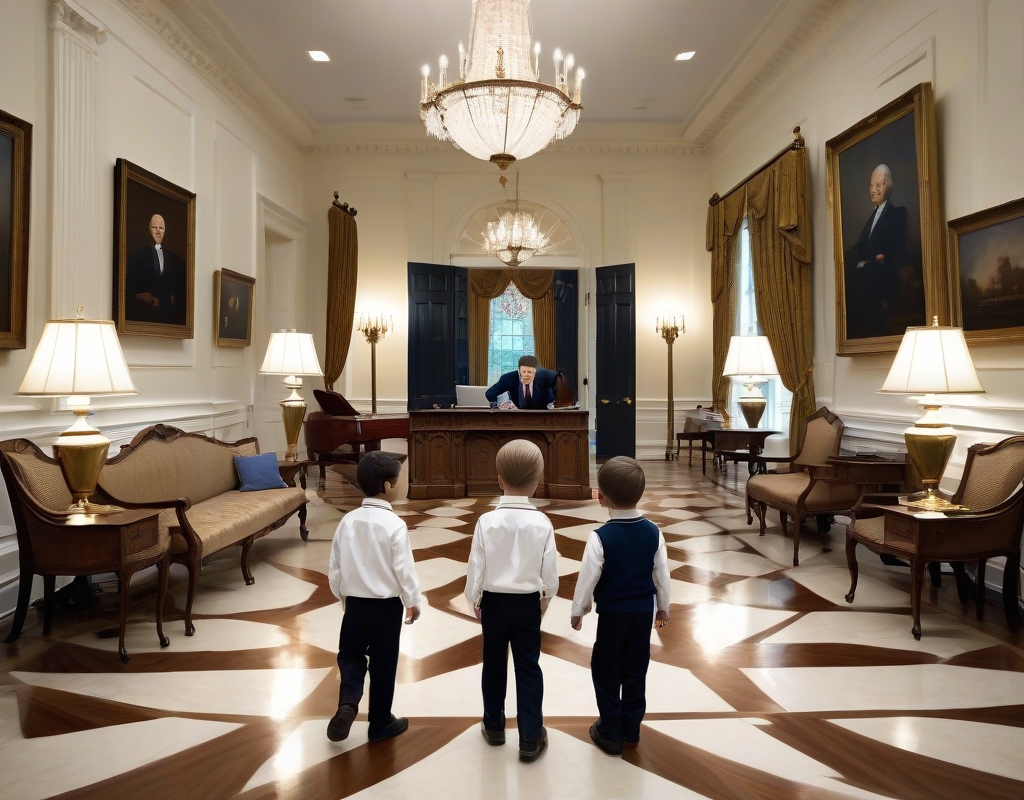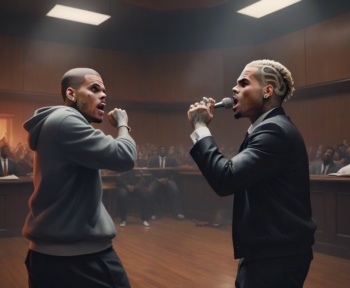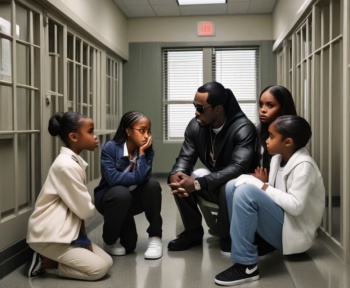Living within the iconic walls of the White House, the children of U.S. presidents, known as Presidential First Kids, experience a unique upbringing that intertwines personal growth with national history. These young individuals navigate a world where their private lives often intersect with public expectations, forging a path that is both extraordinary and challenging.
From historical figures like Caroline Kennedy, who blossomed from a child under global scrutiny into a respected diplomat and author, to modern icons such as Malia and Sasha Obama, these children mature under unparalleled conditions. The narrative of each First Kid is less about the privilege of their position and more about the distinct pressures and opportunities that shape their journeys.
The role of Presidential First Kids has evolved dramatically, particularly with the advent of social media and digital news. Unlike their more secluded predecessors, the contemporary First Kids, such as Malia Obama, face a new kind of visibility. Malia, for instance, has carved out her own niche in the creative field, pursuing a career in filmmaking—a testament to her personal talents far beyond her familial heritage.
The spotlight often intensifies their achievements, as seen with Ivanka Trump, who leveraged her exposure to advance discussions on women’s empowerment and economic issues on a global stage. Despite the lineage, these individuals are increasingly recognized for their own endeavors rather than just their connection to presidential power.
Family remains a pivotal element for First Kids, providing a crucial anchor amidst their unique upbringing. For instance, familial gatherings, whether at the Obama household or the Bush family’s Maine retreat, are cherished events that reinforce normalcy and continuity against the backdrop of their public roles.
As these children mature, they leave lasting impacts on the cultural and societal landscape. Each chooses paths that resonate with their personal interests and societal contributions, from global health advocacy to breakthroughs in the arts. Malia Obama’s venture into the entertainment industry signals a shift towards independence and personal choice that departs from traditional expectations tied to her family’s political legacy.
The fascination with Presidential First Kids goes beyond mere curiosity—as reflected in public surveys and media coverage—it mirrors a broader cultural engagement with the themes of youth, leadership, and identity in the high-pressure environment of the White House.
Such stories challenge our understanding of what it means to grow up in the spotlight and highlight the resilience required to navigate such a public adolescence. These narratives resonate not only because of their unique setting but also because they reflect broader American values and aspirations.
Each First Kid, by virtue of their experience and influence, adds a unique chapter to the collective American story, illustrating diverse ways of handling exposure, responsibility, and personal development. Their lives unfold like a continual narrative that captures the nation’s imagination, showing that the role of a Presidential First Kid is an ongoing journey of balancing historical significance with personal growth.
In a nation that both scrutinizes and idolizes its leaders and their families, the unfolding lives of these young individuals offer insights into the complexities of modern leadership and the human aspects of political life. Each chapter written by a First Kid adds depth to the multifaceted narrative of American history, echoing the evolving challenges and surprising resilience of those who have lived their formative years at 1600 Pennsylvania Avenue.




